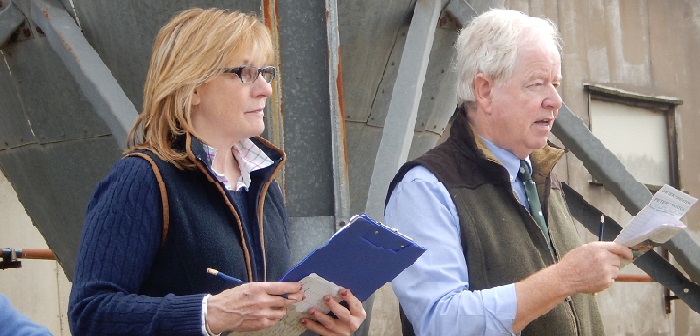With pig supplies still on the tight side and, despite the SPP easing marginally in value by 0.22p to 149.59p, demand remains firm across the board.
It was refreshing to see a modest rise in the German producer price as well as a significant 1.9% improvement in the value of the Euro, which traded on Friday worth 86.11p compared with 84.5p a week earlier.
Weekly contribution prices have generally held at similar levels within the 145p – 151p/kg range.
With virtually all pigs going on contract, there were very few spot bacon pigs available and where there were, prices tended to be in the 150p/kg + region.
Cull sow prices have also moved ahead assisted by the 1.9% increase in the value of the Euro as well as a marginal increase in the German pig price, with the result that cull sow bids moved ahead by around 3p/kg and were traded in the 93p – 96p/kg range in the main.
For comparison purposes, this time last year cull sows were worth just 55p/kg, but a return to more realistic values should allow producers enough wonga to cull out unproductive sows to improve the output and efficiency of their herds.
Weaner values continue to improve with more buyers than sellers and the latest AHDB 30kg ex farm average has now risen to £56.24/head compared with 7kg’s at £38.13/head, but in all cases significant premiums are available on the spot market from buyers who have empty finishing spaces to fill.
Finished pig values and feed costs will both continue to have a major influence on weaner value. The latest reports are indicating that UK old crop futures are now trading at a premium of almost £17/t over nearby Chicago wheat futures and March UK wheat futures are now trading at around £146/t with July at £149/t, but November looks better value at £138.50/t. Spot UK wheat is trading at around £142/t.
UK protein prices have, however, eased as far as soya is concerned, with Brazilian 48% soya trading at the end of February worth £329/t compared with £346/t in mid February.
34% rape meal has, however, hardened and was quoted at the end of last month at around £195/t.
And finally, with Brexit looming in a couple of years pig producers need to be aware of a whole host of challenges facing them including the prospect of import barriers, the lack of single market access, compensation for exotic disease outbreaks, a possible outflow of migrant labour on which many producers and abattoirs rely, not to mention the need to find new markets if it is no longer possible for the 74% of UK pork currently exported to the EU to continue to go in that direction.
More questions than answers at the stage, but it could still be a case of short-term gain and long-term pain.




